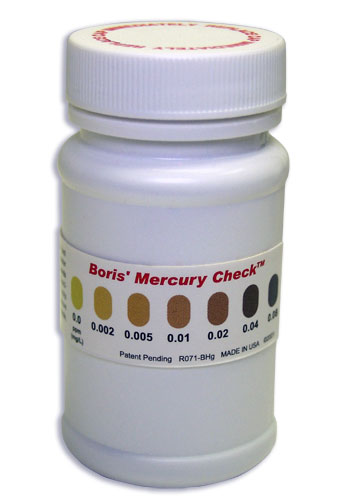As a result of the price of gold increasing in recent times, large numbers of people and companies in Third World nations such as Indonesia have set up impromptu mining facilities where miners throw caution to the wind and willfully use highly toxic mercury to extract raw gold from mined soil.
KERENGPANGI, INDONESIA — A gold miner stands waist-deep in a polluted pond, dumps a capful of mercury into a bucket of ore and mixes it in with his bare hands.
The darting liquid metal wraps itself around the gold to form a silver pellet the size of a marble.
The use of mercury in gold mining is illegal in Indonesia because the metal is toxic to humans and the environment. But the price of gold has tripled since 2001, and mercury is the easiest way to extract it.
“Of course I’m worried,” said miner Handoko, 23, a grim man in a baseball hat who goes by one name. “But this is the job.”
Tens of thousands of remote mining sites have sprung up mostly in Asia, Latin America and Africa, using as much as 1,000 tons of mercury each year. The mercury ravages the nervous system of miners and their families. It also travels thousands of miles in the atmosphere, settling in oceans and riverbeds in Europe and North America and contaminating fish.
Small-scale gold mining is the second-worst source of mercury pollution in the world, after the burning of fossil fuels. And Indonesia ranks behind only China in the use of mercury in gold mining. (source)
Why should the rest of the world care about the use of mercury in gold mining operations on the other side of the planet? Simply put, anything placed (or carelessly dumped) in the environment can and WILL eventually wind up distributing itself all over the planet… and in this case that means the mercury from Indonesia will wind up in the air and drinking water all over the world eventually.
While all United States municipalities must carefully monitor the amount of mercury in the water they distribute, no one monitors the mercury content of the water pulled by private well owners — and that means no one really knows if the water contains mercury or not unless the private well owners test for mercury themselves.
Do simple test methods exist for testing mercury in water? Yes. Boris’ Mercury Test Kit tests down to the EPA limit of 0.002 ppm (or 2 parts per billion) and yields its results quickly.
For cases where people fear that larger scale mercury contamination may have taken place, a product named Mercury Check with a detection range of 50ppm to 1,000ppm may come in handy.





